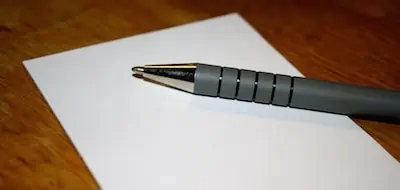On June 17, 2015, a man opened fire on a Black church in Charleston, South Carolina and killed nine people, committing one of the deadliest acts of racist violence in recent history. The Autistic Self Advocacy Network (ASAN) and the Autistic Women’s and Nonbinary Network (AWNN) have submitted a legal brief addressing arguments by the shooter’s defense team that associate autism with violence and suggest that autistic people cannot make decisions. The defense team has taken the position that he is autistic. ASAN and AWN’s brief educates the court about the impact that these arguments may have on the larger autistic community. ASAN and AWN advocate for greater rights for autistic defendants as a whole, but believe that tying autism to mass violence, and claiming that autistic people necessarily cannot make important trial decisions, is harmful to the autistic community overall, including other autistic defendants awaiting trial.
The shooter was convicted of federal hate crimes in 2016. Although his defense team urged him to present evidence that he was autistic, the shooter – who did not identify as autistic – rejected that suggestion and represented himself for part of the proceedings. He is now appealing his death sentence.
ASAN has always opposed attempts to connect autism and mental health disabilities with serious violence. Our legal brief discusses research showing that there is no link between premeditated violence and autism. Arguments linking autism and violence do great harm to our community, as they can influence public opinion and lead to legislation imposing excessive surveillance, isolation, and segregation on people with disabilities, especially Black, Indigenous, and other people of color with disabilities.
ASAN also weighed in on the argument made by the shooter’s defense team that he was incompetent to stand trial because he was autistic, among other reasons. The defense team said that in part because he had low scores on tests of social interaction skills, interpreting perspectives, and integrating new information – tests which many autistic people perform poorly on – he was either incompetent to stand trial or to make decisions about his trial. ASAN does not believe that people with disabilities should stand trial without effective supports that enable us to understand the proceedings, make informed decisions, and communicate with counsel. We have advocated for autistic people who didn’t get the right supports before or during trial. However, the mere existence of a disability does not mean that we cannot make decisions. That kind of rule would be dangerous for people with disabilities. People with disabilities often have our right to make decisions taken away from us. Moreover, people with disabilities who are deemed incompetent to stand trial are often institutionalized for longer than their sentence would have been. ASAN is concerned that, if someone with autistic traits is automatically considered incompetent to stand trial instead of being given adequate supports, this would cause harm to many other autistic people navigating the criminal legal system.
The full legal brief is available here. ASAN believes that the criminal legal system needs major changes, and that autistic people routinely have our rights denied to us in court. ASAN also will always and continually oppose the stigmatization of autistic people as violent and support our right to make choices. We wholeheartedly condemn all acts of racist violence and terror. For more information on these issues please contact Sam Crane, our Legal Director, at scrane@autisticadvocacy.org.
The Autistic Self Advocacy Network seeks to advance the principles of the disability rights movement with regard to autism. ASAN believes that the goal of autism advocacy should be a world in which autistic people enjoy equal access, rights, and opportunities. We work to empower autistic people across the world to take control of our own lives and the future of our common community, and seek to organize the autistic community to ensure our voices are heard in the national conversation about us. Nothing About Us, Without Us!

